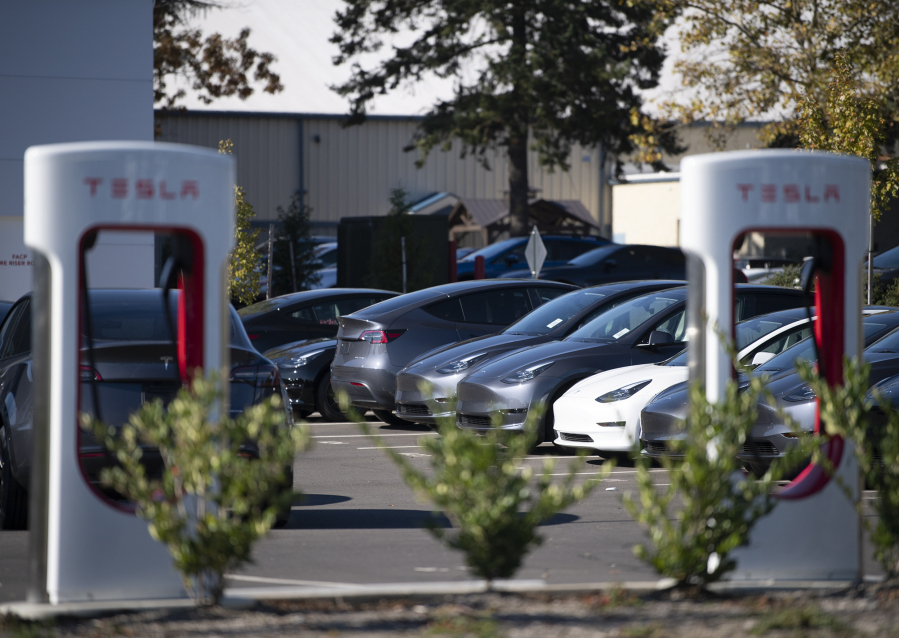Clark County motorists continue to electrify as battery electric vehicle, also known as BEV, registrations in the county are on track to nearly double from 2022 levels.
Through September, 2,000 BEVs have been registered in Clark County, compared with 1,363 in 2022, according to the Washington Department of Licensing. Through Oct. 19, there are 6,589 BEVs in Clark County.
Don Steinke, a local environmental activist, said the increase is not a shock, pointing to Clark Public Utilities’ observation last October that the number of electric vehicles registered in Clark County grows by about 50 percent each year.
Reasons for purchasing a battery electric vehicle vary. Fuel prices are high — Washington has the third highest average gas and diesel prices in the union — incentives to electrify are plentiful and others are concerned about the impact of fossil fuels on the environment.





